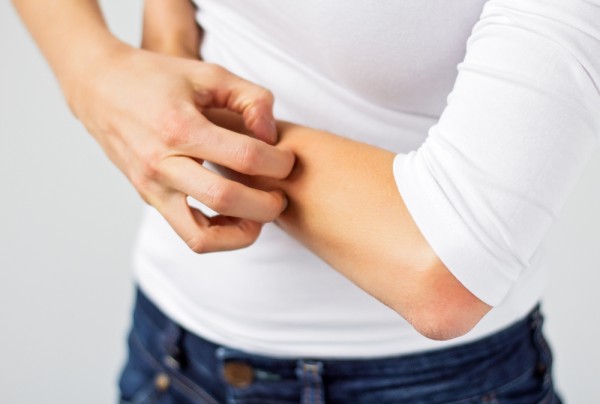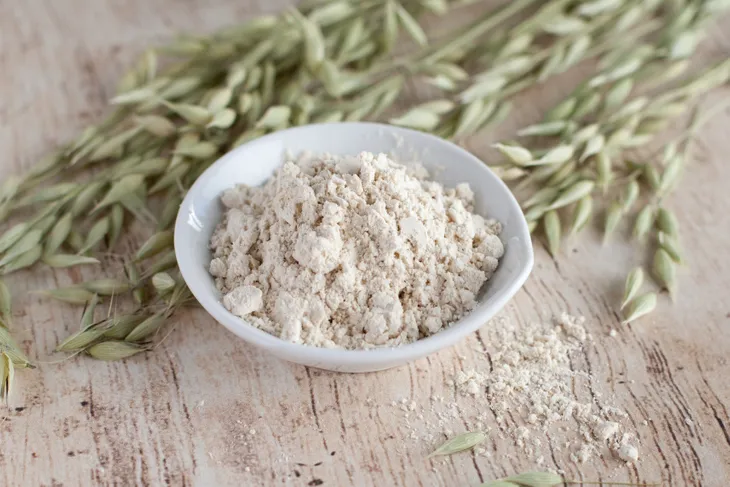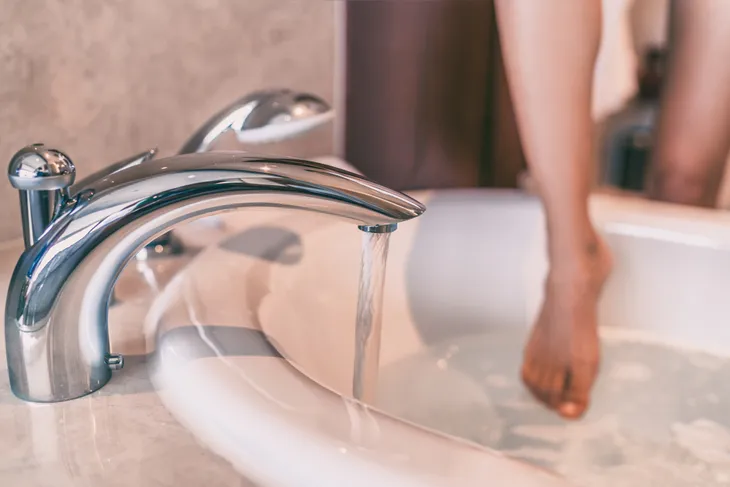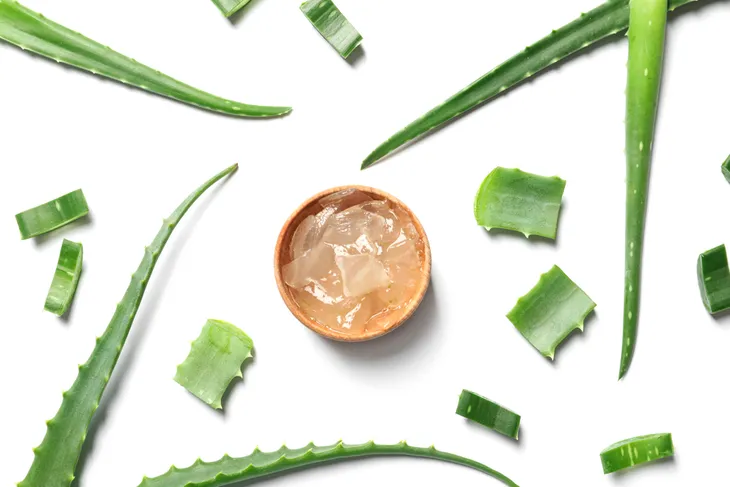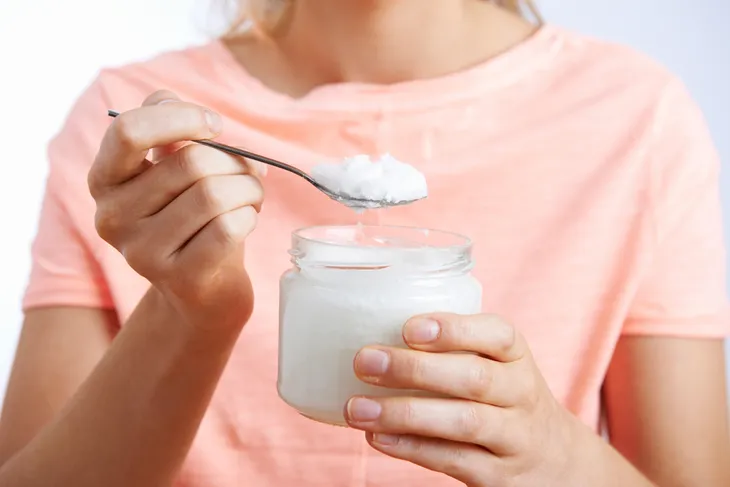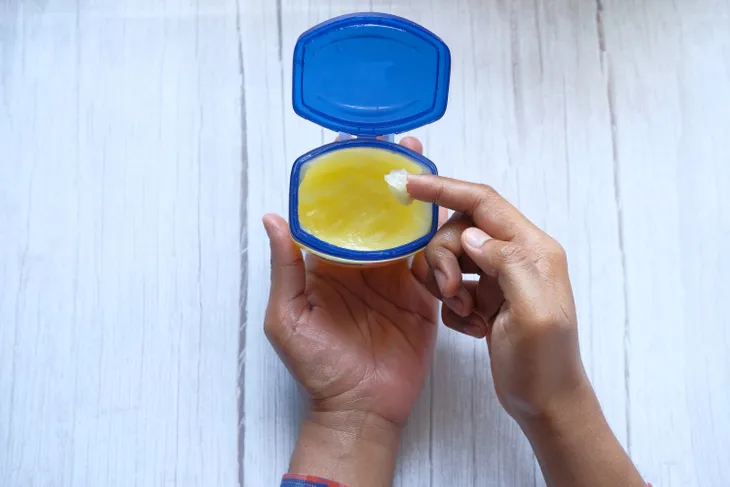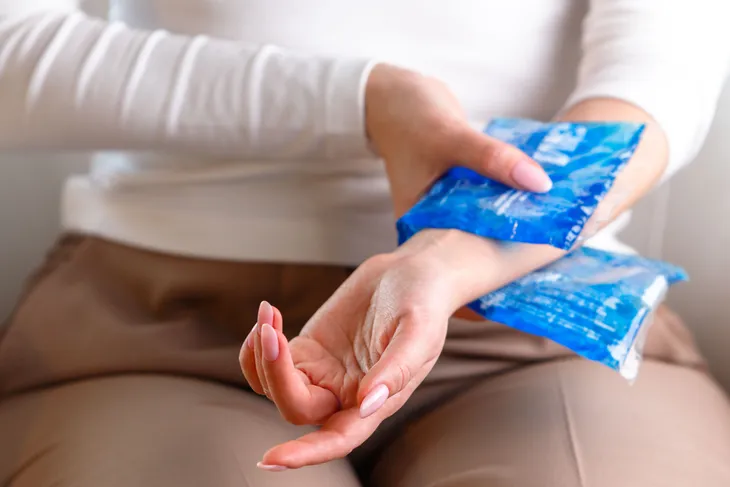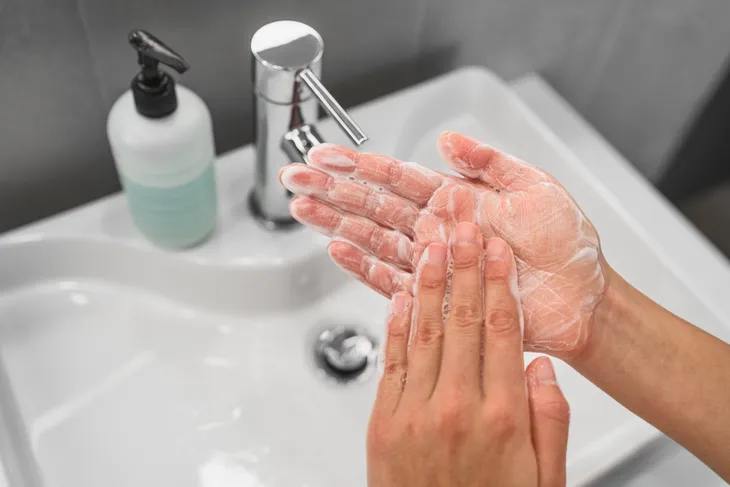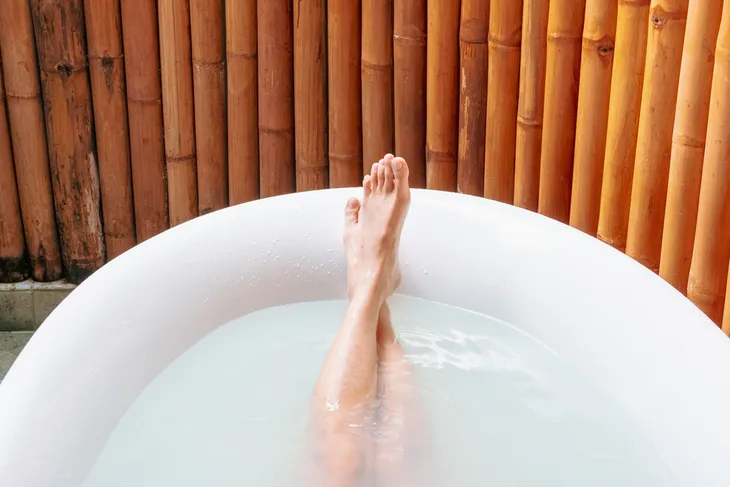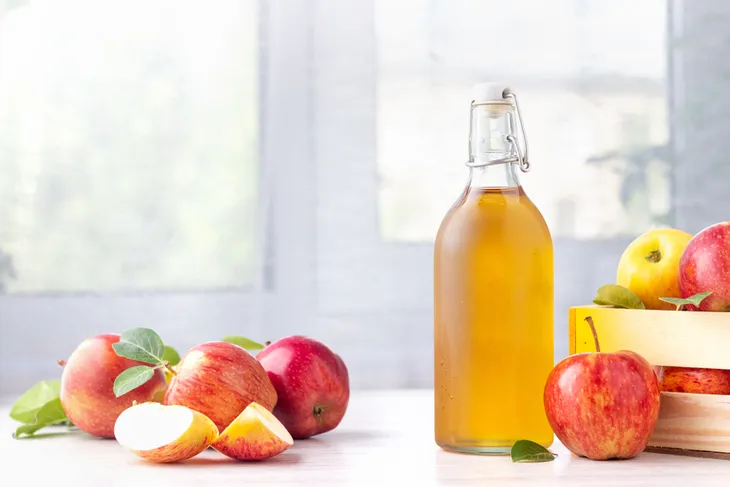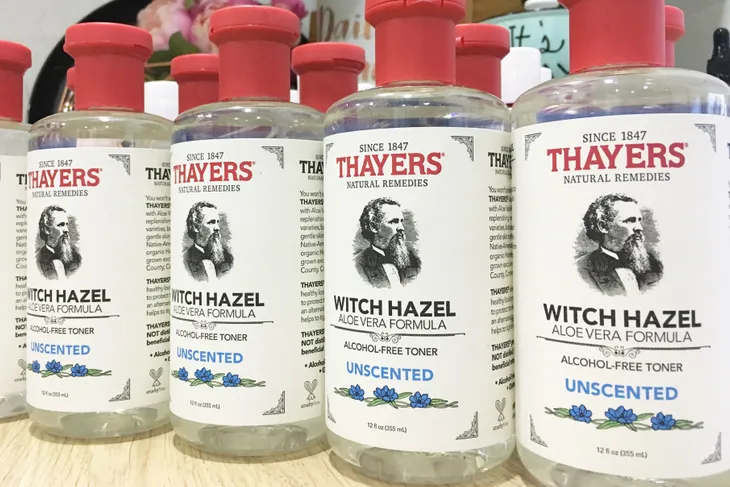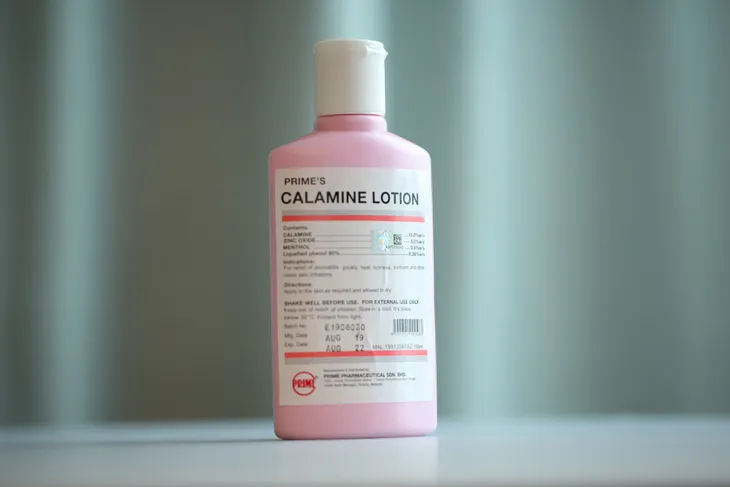- Applying a rich, gentle moisturizer containing anti-inflammatory ingredients, such as colloidal oatmeal, can help reduce eczema symptoms.
- Regular bathing in warm water and following a soak-and-seal routine can improve hydration for eczema-prone skin.
- Consult your doctor before using bleach baths or apple cider vinegar to treat your eczema at home.
Eczema is a common dermatological condition that causes dry, itchy and inflamed skin. The itching and discomfort of an eczema breakout can be unpleasant, and your doctor can prescribe treatments to improve symptoms and provide advice about how to care for your skin. However, there are also some simple home remedies that you can try to reduce itching and soreness.
Here are 12 easy, at-home treatments for eczema…
Colloidal Oatmeal
Colloidal oatmeal is finely ground oatmeal that can help soothe itchy or inflamed skin. Oats contain high levels of lipids and beta-glucan, which moisturize the skin and reduce discomfort. They also contain various antioxidants, including avenanthramides, which have anti-inflammatory properties that may reduce eczema symptoms.
Significant evidence suggests that colloidal oatmeal is an effective treatment for eczema. A 2015 study concluded that colloidal oatmeal lotion significantly reduced skin dryness, scaliness and itching in participants. A double-blind study in 2020 also found that using one percent colloidal oatmeal cream helped lessen the symptoms of eczema on the hands.
You can reap the benefits of colloidal oatmeal as a treatment by adding a cup of colloidal oatmeal to your bath. Alternatively, you can purchase creams and lotions in most drugstores and online, and apply them to the affected skin.
Soak and Seal
The National Eczema Association recommends the Soak and Seal method to tackle dryness and reduce the symptoms of eczema. This technique involves thoroughly moisturizing the skin as quickly as possible after bathing to protect the skin barrier.
People with eczema may benefit from following a soak-and-seal routine at least once daily. Bathing and moisturizing before bed is particularly beneficial because it gives the skin time to absorb more moisture.
Begin by bathing for between 10 and 15 minutes in lukewarm (not hot) water. Next, gently pat your skin dry with a towel, taking care not to scrub your skin. Apply any prescribed eczema treatment, then apply a high oil-content moisturizer to your entire body within three minutes. Wait a few minutes for your skin to absorb the moisturizer before dressing.
Aloe Vera
Aloe vera is a succulent plant native to parts of Africa and the Arabian Peninsula, and a common houseplant in many parts of the world, including the United States. It has thick leaves that store water as a gel, which is sometimes used as a treatment for itchy and irritated skin.
Aloe vera gel contains anti-inflammatory compounds called anthraquinones that encourage skin healing and reduce pain. This is the reason that people often apply it after getting a sunburn. It’s also an excellent moisturizer, making it a good option for people with dry, scaly skin due to eczema.
A 2009 research review on the medicinal uses of aloe vera concluded that it’s effective at reducing inflammation of the skin. Although the review didn’t find conclusive evidence of aloe vera’s efficacy as a treatment for dermatologic conditions, the research available is promising. Therefore, it may be worth adding aloe vera gel to your skincare routine if you have eczema. It’s readily available in drugstores, but you can also consider growing your own aloe vera plants and squeezing the gel from cut leaves.
Coconut Oil
Coconut oil is a popular cooking ingredient, but it’s also an effective and natural skin moisturizer. Although the NEA is circumspect on the potential of coconut oil as an eczema treatment, some evidence suggests that it may be helpful for some people. A 2013 study found that applying virgin coconut oil helped improve skin hydration in children with mild-to-moderate eczema.
Coconut oil also contains lauric acid, a lipid with antimicrobial and antifungal properties. Therefore, it may be helpful if you have cracked skin and are worried about infection.
Petroleum Jelly
Applying plain old petroleum jelly to cracked or irritated skin can be an effective way to treat eczema and reduce the risk of skin infections. Petroleum jelly creates a waterproof barrier that protects the skin and stops it from losing moisture. It’s also an effective antimicrobial and anti-fungal treatment.
There’s also evidence that applying moisturizer every day can help reduce the risk of eczema in high-risk newborns. A 2017 study, published by JAMA Pediatrics, evaluated the prophylactic use of seven moisturizers and found that moisturizing a baby’s skin with petroleum jelly was the most cost-effective way to prevent atopical eczema.
Cool Compresses
According to the American Academy of Dermatology Association, applying a cool compress to sore skin affected by eczema can reduce itchiness. It recommends running a clean towel under cold water and wringing it out before applying it to the skin. Applying a high oil-content moisturizer to the area afterward can help stop the skin from becoming dry, which can exacerbate itchiness and pain.
Gentle Cleansers
Many soaps and skin cleansers contain harsh chemicals or fragrances that can dry out the skin and make eczema symptoms worse. Therefore, using gentle cleansers with moisturizing ingredients can help prevent irritation and flare-ups.
The American Academy of Allergy, Asthma & Immunology recommends avoiding products containing sodium lauryl sulfate, including most bubble baths. This ingredient makes soaps foamy and can dehydrate the skin. Choosing cleansers and cosmetics recommended for eczema-prone skin, such as products carrying the NEA Seal of Acceptance, can make it easier to avoid irritating chemicals.
Bleach Baths
Although adding bleach to your bath may sound alarming, mixing small amounts of bleach into bathwater may help reduce itchiness and scaliness. This home remedy works by killing the bacteria on skin that sometimes exacerbates eczema symptoms.
The Mayo Clinic recommends adding between 1/4 and 1/2 cup of household bleach to a 40-gallon bath. Keep your head above the waterline to prevent the solution from getting on your face or into your eyes. Rinse your skin if the bleach causes any irritation, then follow the soak-and-seal routine to prevent moisture loss.
Limit bleach baths to three or less per week, and don’t stay in a bleach bath for more than 10 minutes. Bleach baths aren’t suitable for everyone and can cause pain if your skin is cracked, so it’s wise to consult your doctor first.
Apple Cider Vinegar
Apple cider vinegar is often touted as a weight-loss supplement, but some people also find it helpful for treating eczema. Although there’s no scientific evidence to support the use of apple cider vinegar as an eczema treatment, some scientists think it lowers the skin’s pH level.
According to the NEA, people with eczema generally have elevated skin pH levels, preventing the skin barrier from functioning correctly. Therefore, applying apple cider vinegar may help reduce symptoms.
Don’t apply pure apple cider vinegar to your skin. Instead, you can add a cup or two to your bath, or make a solution from equal parts water and apple cider vinegar, and apply it as a compress. However, it’s best to consult your doctor first, especially if you’re planning to use apple cider vinegar to treat a child or baby.
Witch Hazel
Witch hazel is a deciduous shrub that’s sometimes used to treat skin inflammation. The leaves and bark contain tannins, which may help reduce swelling and irritation. You can purchase witch hazel in creams and lotions or as a liquid solution.
Not much research is available about the potential benefits of witch hazel as an eczema treatment, though some people find it soothing. The Mount Sinai Hospital recommends witch hazel cream to reduce itchiness. It also suggests applying liquid witch hazel to your skin if it’s weeping.
Calamine Lotion
Calamine lotion contains zinc oxide and iron oxide to reduce skin itching. It’s commonly used to treat skin irritation caused by contact with poison ivy, but it’s also an effective way to reduce the itchiness of an eczema flare-up.
You can purchase calamine lotion over the counter from pharmacies and drugstores. The Mayo Clinic recommends applying the lotion to itchy areas of skin before applying your regular moisturizer.
Stress Reduction
Stress is a common trigger of eczema flare-ups, so taking steps to manage and reduce stress may be an effective way to lessen eczema’s symptoms.
Relaxation techniques, such as mindfulness practices and meditation, may help reduce stress, and it’s worth trying a few different methods to find what works for you. The NEA also recommends prioritizing sleep and getting regular exercise to help manage stress-related flare-ups. However, it’s a good idea to seek advice from your health care provider if your stress levels feel unmanageable or you’re experiencing symptoms of anxiety or depression.
